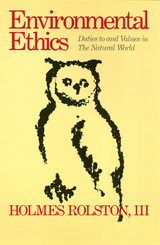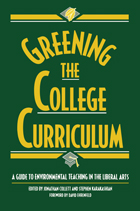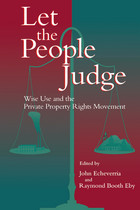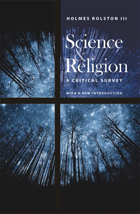
Environmental Ethics is a systematic account of values carried by the natural world, coupled with an inquiry into duties toward animals, plants, species, and ecosystems. A comprehensive philosophy of nature is illustrated by and integrated with numerous actual examples of ethical decisions made in encounters with fauna and flora, endangered species, and threatened ecosystems. The ethics developed is informed throughout by ecological science and evolutionary biology, with attention to the logic of moving from what is in nature to what ought to be.
The ethical theory is applied in detail to social, public, and business policy. Written in an engaging style, using diagrams and figures as well as numerous case studies, Environmental Ethics prods the reader into concrete application and invites reader participation in the ethical discussions. The ethics concludes by exploring the historical experiences of personal residence in a surrounding environment. Here is an adventure into what it means to live as responsible human beings in the community of life on Earth.
In the series Ethics and Action, edited by Tom Regan.

Greening the College Curriculum provides the tools college and university faculty need to meet personal and institutional goals for integrating environmental issues into the curriculum. Leading educators from a wide range of fields, including anthropology, biology, economics, geography, history, literature, journalism, philosophy, political science, and religion, describe their experience introducing environmental issues into their teaching.
The book provides:
- a rationale for including material on the environment in the teaching of the basic concepts of each discipline
- guidelines for constructing a unit or a full course at the introductory level that makes use of environmental subjects
- sample plans for upper-level courses
- a compendium of annotated resources, both print and nonprint


opportunities been greater for fertile interaction between these fields, with mutual benefits to both,” states Rolston. The re-publication of this book provides current researchers and students in the field an invaluable, timeless methodological resource.The new introduction offers updated insights based on new scientific research.
READERS
Browse our collection.
PUBLISHERS
See BiblioVault's publisher services.
STUDENT SERVICES
Files for college accessibility offices.
UChicago Accessibility Resources
home | accessibility | search | about | contact us
BiblioVault ® 2001 - 2024
The University of Chicago Press









